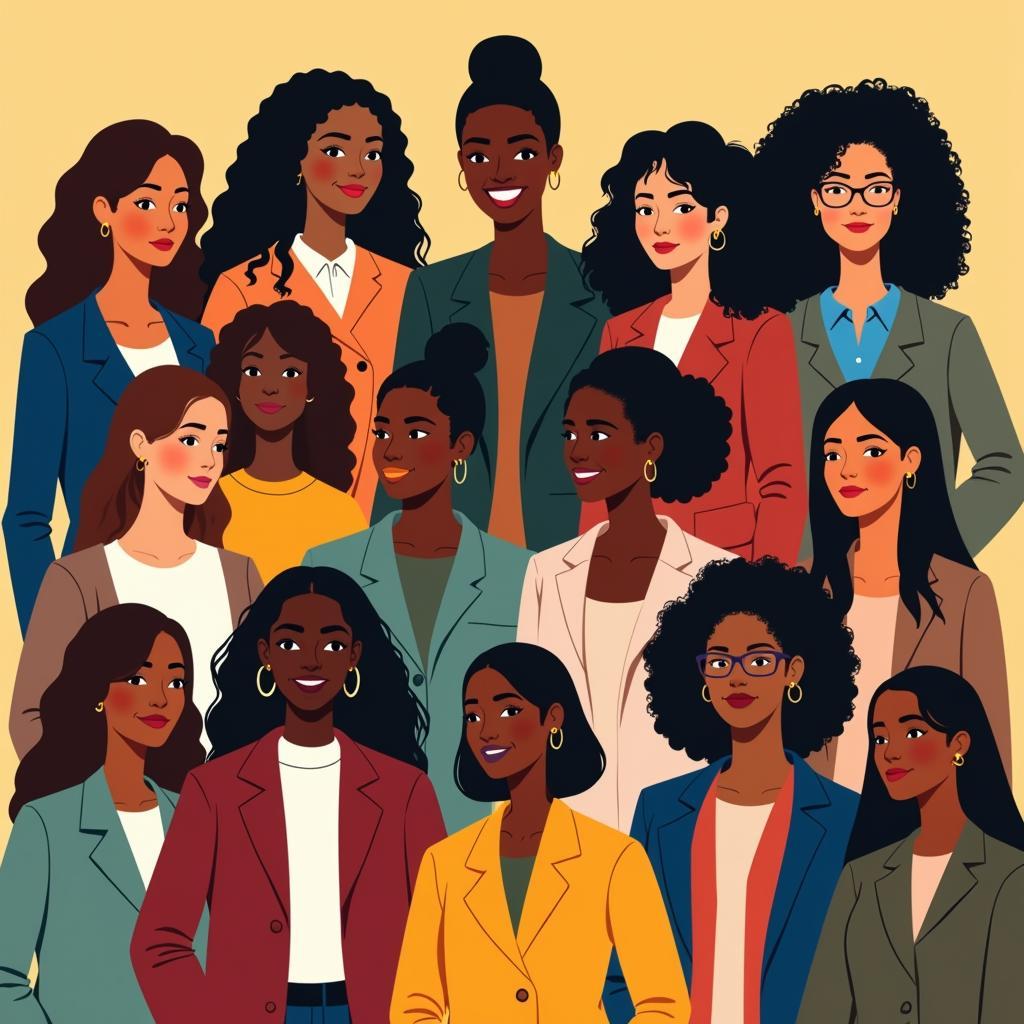10 Facts About South African Culture
South African culture is a vibrant tapestry woven from diverse influences. This article explores 10 Facts About South African Culture, showcasing its unique blend of traditions, languages, and arts. From the rhythm of its music to the spice of its cuisine, South Africa offers a captivating cultural experience.
The Rainbow Nation: A Melting Pot of Cultures
South Africa is aptly nicknamed the “Rainbow Nation,” reflecting its multiculturalism. Influenced by indigenous African communities, European settlers, and Asian immigrants, South African culture is a dynamic fusion. This blend is evident in everything from languages to cuisine and social customs. One fascinating aspect is the coexistence of traditional practices alongside modern influences. This cultural exchange creates a uniquely South African identity. Check out more about African clothing facts.
It’s important to note that while the “Rainbow Nation” label celebrates diversity, it also masks complex social and economic inequalities rooted in the country’s history of apartheid. Understanding this nuance is key to appreciating the full picture of South African culture.
11 Official Languages: A Linguistic Tapestry
South Africa boasts 11 official languages, a testament to its diverse population. These include Zulu, Xhosa, Afrikaans, English, and several others. This linguistic diversity adds another layer to the rich cultural fabric of the nation. Imagine hearing a mix of languages on a bustling city street, each carrying its own history and rhythm.
Ubuntu: The Spirit of Togetherness
Ubuntu, a Nguni Bantu term, embodies a philosophy of interconnectedness and shared humanity. It emphasizes the importance of community and compassion. Ubuntu is a core value in many South African communities and plays a role in shaping social interactions. This principle encourages a sense of belonging and mutual support. What are some examples of Ubuntu in action? Think of community initiatives, acts of kindness, and the emphasis on collective well-being.
A Rich Artistic Heritage: From Rock Art to Contemporary Creations
South Africa’s artistic heritage is as diverse as its people. From ancient San rock art to contemporary paintings, sculptures, and crafts, South African art reflects the country’s history, struggles, and triumphs. The country has produced renowned artists whose work has gained international recognition. You can discover interesting facts about the African fish eagle.
Music and Dance: Rhythms of Life
Music and dance are integral to South African culture. Traditional music often incorporates drumming, chanting, and storytelling. Different ethnic groups have their own unique musical styles and instruments. Dance is often used to express emotions, celebrate important occasions, and tell stories. Have you ever witnessed a traditional South African dance performance? The vibrant energy and rhythmic movements are truly captivating.
Diverse Cuisine: A Culinary Journey
South African cuisine is a delicious blend of flavors influenced by indigenous traditions and international cuisines. From braai (barbecue) to bunny chow (a hollowed-out loaf of bread filled with curry), South African food offers a unique culinary experience. The use of spices and local ingredients creates distinctive flavors that tantalize the taste buds. For more interesting information, check out these African bullfrog facts.
What is the Significance of Beadwork in South African Culture?
Beadwork holds significant cultural meaning in South Africa, often representing identity, status, and spiritual beliefs. Different colors and patterns can convey different messages. Beadwork is also an important form of artistic expression.
How Does South African Literature Reflect its History?
South African literature, particularly works written during and after apartheid, offers powerful insights into the country’s history, social dynamics, and the impact of racial segregation. Authors like Nadine Gordimer and J.M. Coetzee have explored these themes in their award-winning novels.
What Role Do Traditional Healers Play in South African Society?
Traditional healers continue to play a significant role in many South African communities, providing healthcare and spiritual guidance. Their knowledge of traditional medicine and healing practices is often passed down through generations.
10. Sports: A Unifying Force
Sports, particularly rugby and soccer, play a significant role in South African society. These sports have the power to unite people from different backgrounds and foster a sense of national pride. The 1995 Rugby World Cup, hosted by South Africa shortly after the end of apartheid, is a powerful example of the unifying power of sports. Learn about the capitals and independence dates of various African countries.
Conclusion
These 10 facts about South African culture offer just a glimpse into the rich tapestry of this fascinating nation. From the diversity of its languages to the warmth of its people, South Africa offers a captivating cultural experience. Explore further and discover the magic of South Africa for yourself!
FAQ
- What is the most commonly spoken language in South Africa? Zulu.
- What is the currency of South Africa? The South African Rand (ZAR).
- What is the best time to visit South Africa? This depends on your interests, but generally, spring (September-November) and autumn (March-May) offer pleasant weather.
- What are some popular tourist destinations in South Africa? Cape Town, Kruger National Park, and the Garden Route.
- What is a braai? A South African barbecue, considered a social gathering and a cherished tradition.
- What is the meaning of Ubuntu? A Nguni Bantu term meaning “humanity” and emphasizing interconnectedness and shared humanity.
- What are some popular South African musicians? Ladysmith Black Mambazo, Miriam Makeba, and Hugh Masekela.
Common Situations and Questions
- Planning a trip to South Africa: Consider visa requirements, travel insurance, and recommended vaccinations.
- Cultural sensitivity: Be mindful of local customs and traditions.
- Safety: Research safe areas and take necessary precautions.
Further Exploration
Explore other fascinating aspects of African culture, such as the African birth song.
Contact Us
For assistance, please contact us: Phone: +255768904061, Email: [email protected], or visit us at Mbarali DC Mawindi, Kangaga, Tanzania. We have a 24/7 customer service team.
